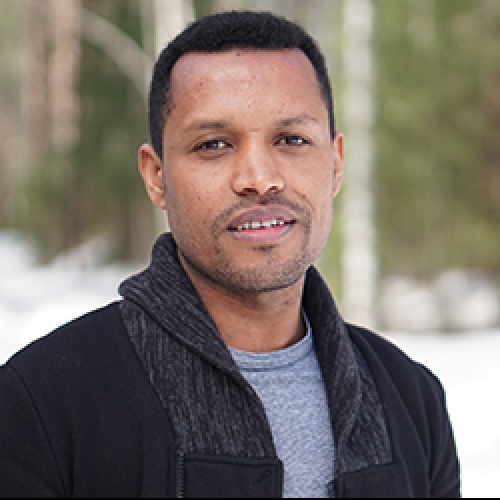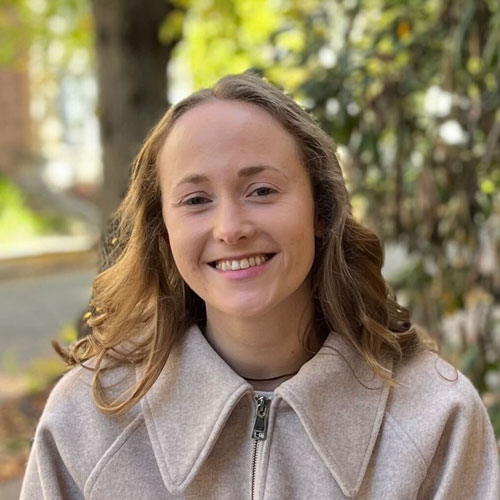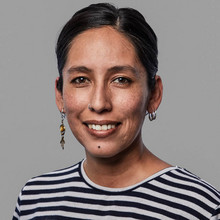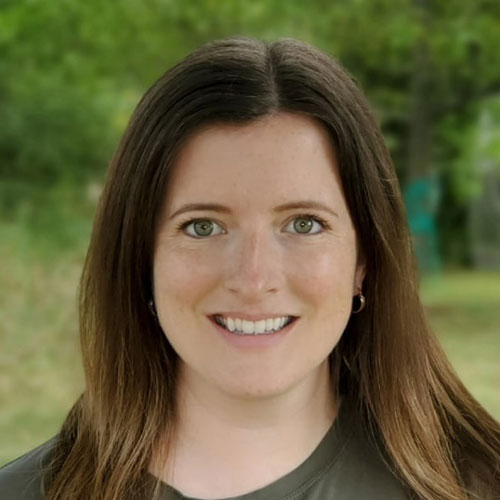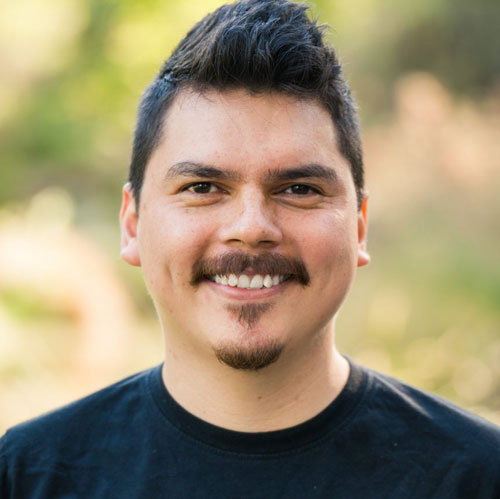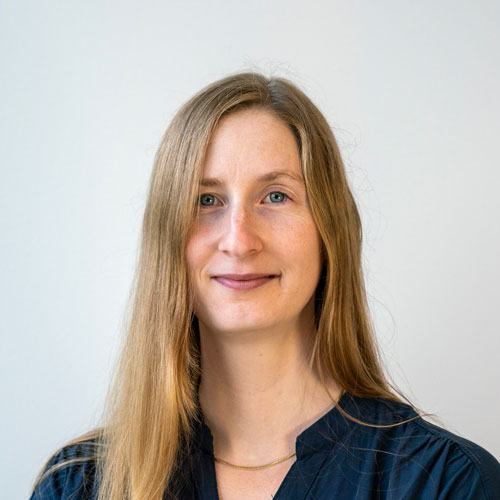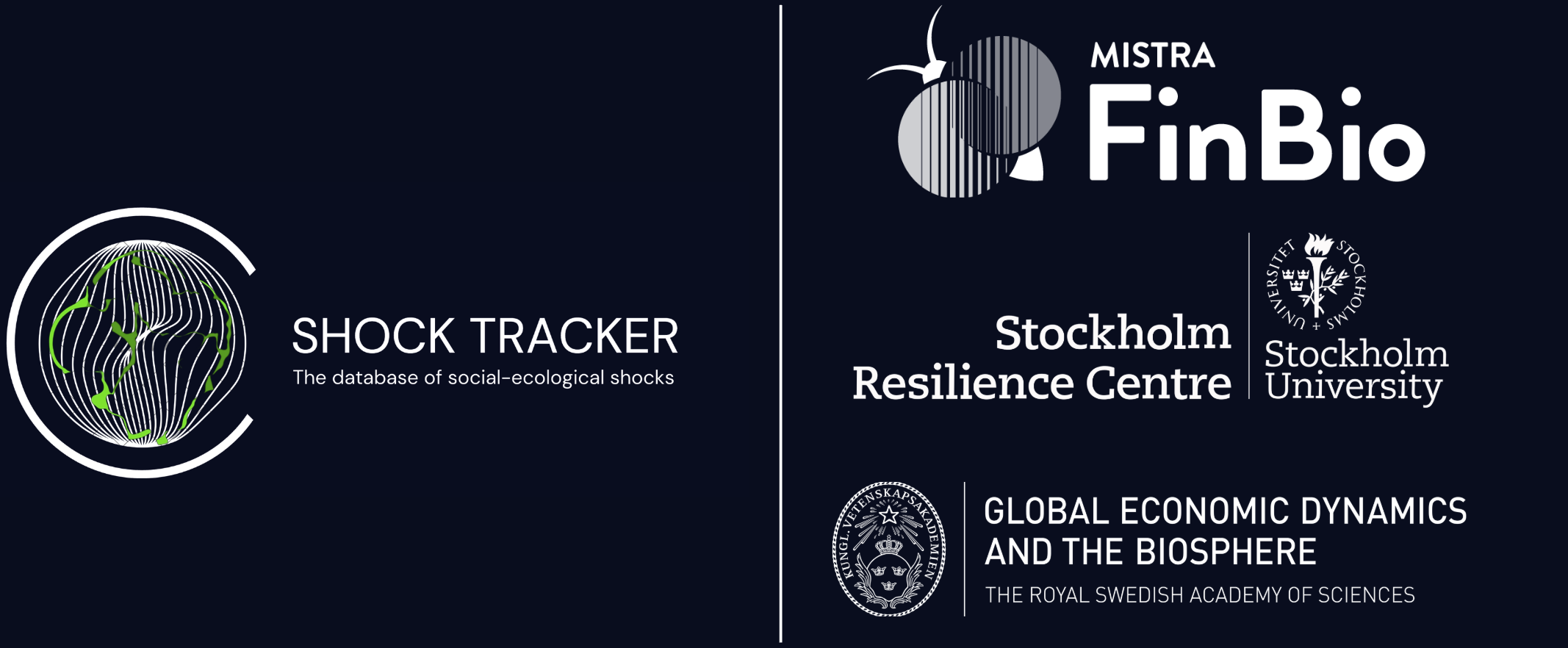Map the cases, expose the patterns. Shock Tracker.
The first global database of social-ecological shocks, accessible to academics and communities.
Explore tracked shocks
The Shock Tracker database is updated live with contributions from every corner of the world. Click on the geotags to reveal more information on a specific case!
Global
Sub-continental
National
Local
How do I contribute?
Engage with Shock Tracker and help us get closer to tackling the turbulent world of today and tomorrow. There are three different ways you can contribute:
- Add a new case: Describe a shock that is not yet in the database.
- Update a case: Add information to a shock that is already in the database
- Flag a case: Tell us about a shock that is happening, even if the contribution of all necessary information may not be possible yet (for example during ongoing events).
We value contributions from cases that you have personally experienced, though this is not a requirement for Shock Tracker. We urge you to add or flag any shock that you think is missing from the database. For updates: all the cases you find on the globe-map were added by an individual contributor from their own perspective, even if the information provided is anchored in scientific literature and professional journalistic sources. If you believe you can add a different or nuanced perspective, you are encouraged to contribute an update.
🤲🏼
Join The Shock Tracker Network
The Shock Tracker database is built up of case contributions from our growing international network.
The Project
Shock Tracker is a research project, a database and a collection of stories. The overall goal of Shock Tracker is to make communities, businesses and ecosystems more resilient and able to tackle the turbulent world we now live in.
To do this, we need:
- An understanding of what undesirable events could happen today and in the future.
- A diverse and nuanced understanding of the causes and impacts of these events.
- Information and tools to reduce the pressures causing events and mitigate the impacts of events once they happen.
This is why Shock Tracker was founded, to provide the data and understanding needed to tackle today’s challenges. Shock Tracker is unique and complementary to other datasets out there in three main ways.
Firstly, Shock Tracker collects stories, or case studies. This means that every entry has a description of not just the event, but also its causes and impacts. This provides researchers with the opportunity to start detecting patterns between cases and start to understand what we can do to either avoid events entirely or at least mitigate the impacts.
Secondly, Shock Tracker takes a social-ecological perspective. This means that it collects a broad range of cases, where the impacts go beyond human lives lost or insurance losses to also include impacts on ecosystems and the many diverse ways in which human health and wellbeing can be affected. The social-ecological perspective also means that Shock Tracker asks contributors to reflect on how the interactions between humans and nature contributed to either creating the event or the extent of its impacts.
Lastly, Shock Tracker is a citizen science approach that collects stories and case studies from a range of different people across the world. By designing Shock Tracker in this way, we hope to overcome some of the biases of other databases and methods. We hope to begin to overcome the strong geographical bias that currently dominates many other datasets, where certain countries or regions especially in the Global South are underrepresented. We also hope to overcome the media bias, where events that usually get reported are only those that make it into news stories. This bias means data is usually only collected on bigger events leading to lives being lost or large economic implications. At Shock Tracker we want to acknowledge that an event can have been shocking and impactful to a local community or business without it making the news. As sustainability researchers we are also acutely aware that many of the sustainability problems we face today are not caused by single large events, but rather the accumulation of many smaller impacts. This is what we want to capture with Shock Tracker.
We hope that you join us in our ambition and help contribute to a better and more nuanced understanding of our turbulent world.
Meet the Shock Tracker Developers
We are sustainability scientists researching the reality of our turbulent world. Our commitment is to build up a database of shocks by involving communities and their lived experiences in our research. This is why we created this open-access platform. Every case you add to Shock Tracker helps us better understand the diverse impacts and causes of shocks today and tomorrow.
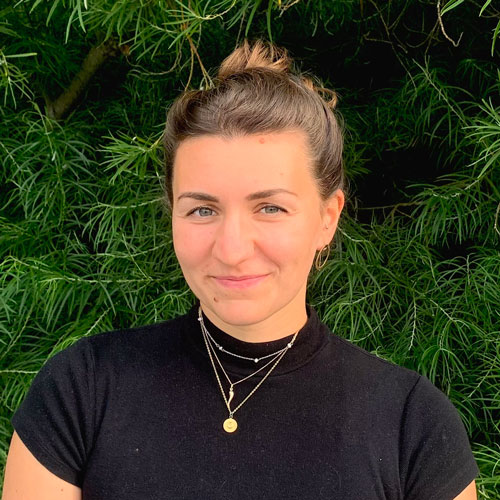
MSc, Researcher
Global Economic Dynamics and the Biosphere, The Royal Swedish Academy of Sciences
Upcoming Developments
Access to full open-source data
The data shown in the pop-ups of the globe-map is only a fraction of what we have collected for each case! We are developing a ‘download’ section where the full data sheet will be made available to Shock Tracker users.
Globe-map filtering functions
The globe-map now shows shocks at all scales (local to global). We will soon insert a filtering function, so users will be able to browse through the events at a selected scale of impact.
NEXT EVENTS
Find us at the European Geosciences Union conference!
Orals | ITS4.6/CL0.11
Shock Tracker: A living database of shocks
Emmy Wassénius and Giulia Rubin
Thu, 01 May, 08:55–09:05 (CEST) Room 2.17
We will present Shock Tracker at the Stockholm Resilience Centre
SRC Speed Talks
Mon, 02 June, 12.00-13.00 (CEST) Lunch Hall



